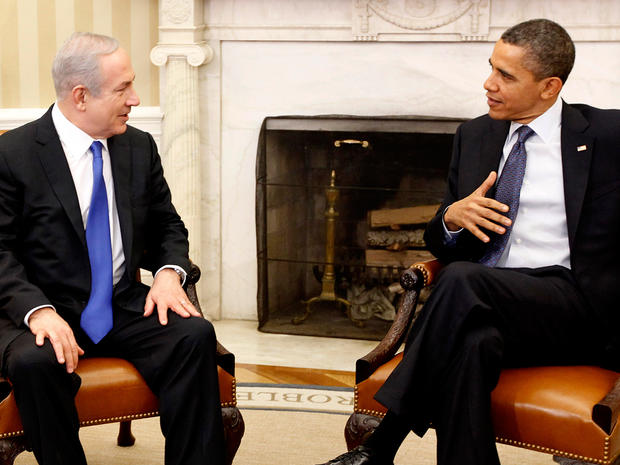Poll: Most support U.S. military action to stop Iran from getting nuclear weapons
(CBS News) Amid continued speculation that Israel may be considering an attack on Iran, a majority of Americans say they would favor using U.S. military action against Iran to prevent the country from acquiring nuclear weapons, according to a new CBS News/New York Times poll.
The poll, which surveyed more than 1,000 adults nationwide between March 7 and 11, showed that 51 percent of Americans would support U.S. military action in Iran for purposes of stopping the country from developing a nuclear weapon. Thirty-six percent say they would oppose such action, and 13 percent say they are unsure.
Support for U.S. military action in Iran appears to fall largely along partisan lines: 66 percent of Republicans, compared with 40 percent of Democrats, would be in favor. Conversely, 50 percent of Democrats oppose the use of U.S. force in Iran, while only 24 percent of Republicans say the same. Fifty-one percent of independents would support taking U.S. military action in Iran to prevent the country from developing nuclear capabilities; 34 percent oppose it.
Search the CBS News poll databaseFull poll results
More respondents also say they think the U.S. should support Israel in the event the country undertakes its own military effort against Iran than those who say the U.S. should oppose it. According to the survey, 47 percent of Americans say the U.S. should support Israel in the event of an attack, while 42 percent say the U.S. should not get involved.
That question, too, was divided along partisan lines. Republicans overwhelmingly (72 percent) say they would want the U.S. to get involved, while Democrats (55 percent) and independents (44 percent) say the U.S. should not get involved.
Americans are split on President Obama's handling of the situation in Iran: 42 percent approve and 39 percent disapprove. Nineteen percent say they don't know. Sixty-five percent of Republicans disapprove, and 63 percent of Democrats approve. Independents are divided, with 42 percent approving and 36 percent disapproving. Twenty-two percent of independents said they don't know.
MORE FROM THE POLL:
Most GOP voters expect Romney nomination
Most say employers should be allowed not to cover contraception
Poll: Romney, Santorum narrow gap on Obama
Obama's approval rating sinks to new low
Poll: Most think president can impact gas prices
Mr. Obama has long maintained that Iran should not be allowed to build a nuclear weapon, but he has argued that sanctions and diplomacy - not U.S. military force - are the optimal means with which to prevent Iran from developing it.
The president met last week with Israeli Prime Minister Benjamin Netanyahu to discuss the threat of Iran acquiring nuclear weapons and how the United States and Israel will respond.
In a press conference a day after the meeting, Mr. Obama emphasized that he hoped the U.S. and Iran could resolve their conflicts peacefully.
"Because what I've said is, is that we have a window through which we can resolve this issue peacefully," said Mr. Obama. "We have put forward an international framework that is applying unprecedented pressure. The Iranians just stated that they are willing to return to the negotiating table. And we've got the opportunity, even as we maintain that pressure, to see how it plays out."
In a speech last week in Washington at the American Israel Public Affairs Committee conference, Netanyahu signaled impatience with the president's preferred solution. Israel, he said, has "waited for diplomacy to work, we've waited for sanctions to work. We cannot afford to wait much longer. ... I will never let my people live in the shadow of annihilation."

